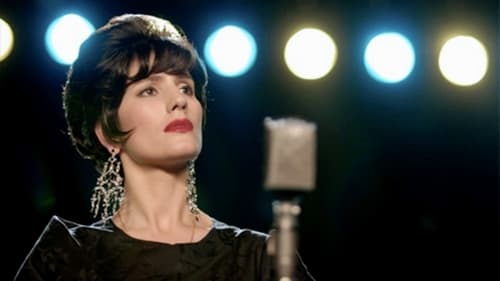Natália Luiza
Nascimento : 1960-05-24, Maputo, Moçambique
História
Natália Luiza Figueiredo Campos is a Portuguese actress.

Mário e Cláudia atravessam um processo de divórcio conflituoso, marcado pela disputa da guarda dos dois filhos (Mateus de 5 anos e Francisco de 6). Mário é um pai pouco tradicional, que vê na alegria a principal regra da educação, mas, por incúria ou azar, sujeita os filhos a situações pouco convencionais. Já Cláudia é ambiciosa e focada no trabalho. As crianças moram alternadamente com os progenitores. Uma divisão posta em causa quando Mário é impedido de estar com os filhos e Cláudia aceita um emprego noutro país. Com a sabedoria das crianças, Francisco e Mateus levarão a que os pais reavaliem as suas mais profundas certezas e ponham os rancores em perspetiva.

Leonor
Este filme relata a história de uma mulher à frente do seu tempo, que desafiou mentalidades e costumes, projetando universalmente o seu nome e o do seu país. A separação dos pais e a reconciliação precária, marcada pela indiferença da mãe e a morte da irmã, até o início da vida adulta, inaugurada pela paixão com o guitarrista amador Francisco Cruz e o sucesso local e nacional, até a ruptura anunciada do casamento. Uma fase de maturação artística e grande agitação. Amália, a biografia da mulher que atravessou o século XX para se transformar numa das maiores personalidades musicais de todos os tempos.

Juíza
In order to make some much-needed cash for himself, 65-year-old Portuguese prison inmate Eugenio impersonates a young woman and begins a romantic correspondence with a lonely Portuguese truck-driver living in Boston, convincing him that her tragic life has culminated in financial dire straits so he will send money. At first Eugenio's sister Idalina assists him in creating the character of Maria da Luz. Touched by her sweetness and apparent loving nature, the trucker willingly sends her money. When Idalina starts fearing they will be caught, she backs out of her arrangement with Eugenio who then convinces his young cellmate Vasco to help write the letters and even sends a picture of himself at age seven to "prove" that Maria has a young son. As prison life exacts an increasingly heavy toll upon Eugenio's health, his feminine alter-ego helps sustain him.

Lúcia/Anjo
Lúcia is an independent woman who lives alone in Lisbon. Her father commits suicide leaving her a message on phone recorder, revealing a letter he wrote. However Lúcia can't find it in her father's house. On that visit she ends up meeting with her mother, a known political activist with whom she has a distant and tense relationship. In hope of finding the letter, Lúcia leaves to the farm where she grew up, on an isolated location. There she reencounters Álvaro, an old childhood companion, who shares a little life time he has left between roses and the piano, and the guardian angel that follows and protects her through nocturnal wanderings.

Mãe
Filipe, um adolescente de 13 anos, vive a concretização do seu maior sonho: passa as férias de verão sozinho com o pai num paraíso, os Açores. Mas todos os sonhos acabam quando acordamos e regressamos à realidade.

Nossa Senhora
Uma Senhora, a Nossa. Um menino, entregue a todos nós. Filho da Mãe. Filhos da uma Mãe. Local de prece e devoção, pela sua organização e disposição, exerce o poder de intimidação próprio de uma capela. Este é o vídeo que retracta a Virgem Maria.

Mercedes (Voz)
Portugal, Julho de 1936. A ditadura de Salazar está consolidada e controla totalmente o país. Um grupo de adolescentes passa as férias de verão na Figueira da Foz. Do outro lado da fronteira começou a Guerra Civil da Espanha e, apesar da distância, a sua violência vai repercutir na vida destes jovens, lançando-os num turbilhão de intrigas políticas e paixões desencontradas que marcará tragicamente a sua passagem para a idade adulta.

Celeste
A Visigoth count conquers a small village town from the Moors in the Lusitanian mountains, only to loose his possessions through the mysterious workings of a woman from parts unknown.

Freira no Convento
At the time Portugal presented a strange spectacle to the rest of Europe. D. Afonso VI, son of the fortunate D. João de Bragança, was in possession of the throne and was an insane imbecile. His wife, daughter of the Duke of Nemours and cousin of Louis XIV, dared hatch a plot to oust her husband from the throne. The king's stupidity justified the queen's bravado. Despite being master of unusual strength and having slept with his wife for a long time, she accused him of being impotent. Marie Françoise had acquired through artfulness what Afonso had lost in anger in the kingdom. She had him imprisoned ( November 1667 ) and quickly obtained a papal bull from Rome to confirm her virginity and bless her marriage to her brother-in-law Pedro. Portugal's submission for the Academy Award for Best Foreign Language Film in 1990.








